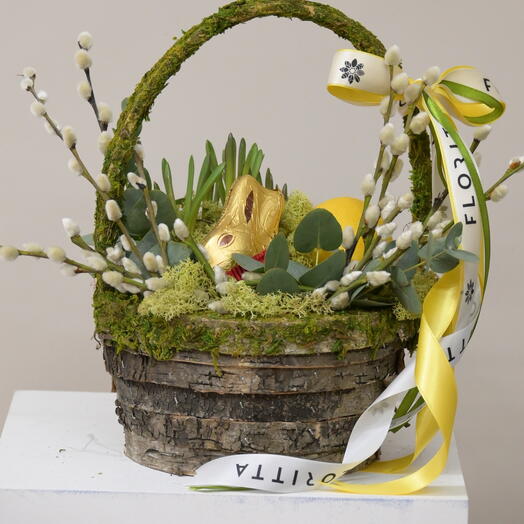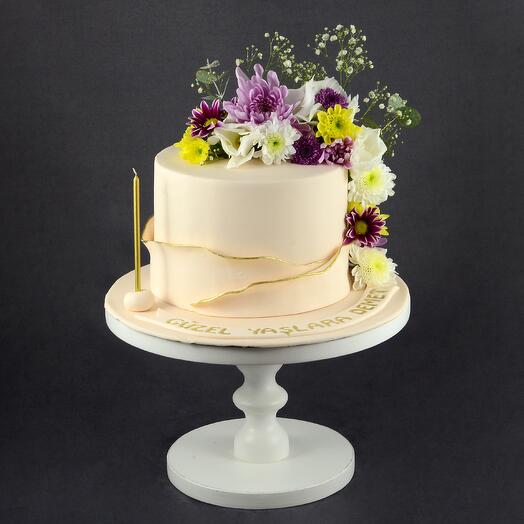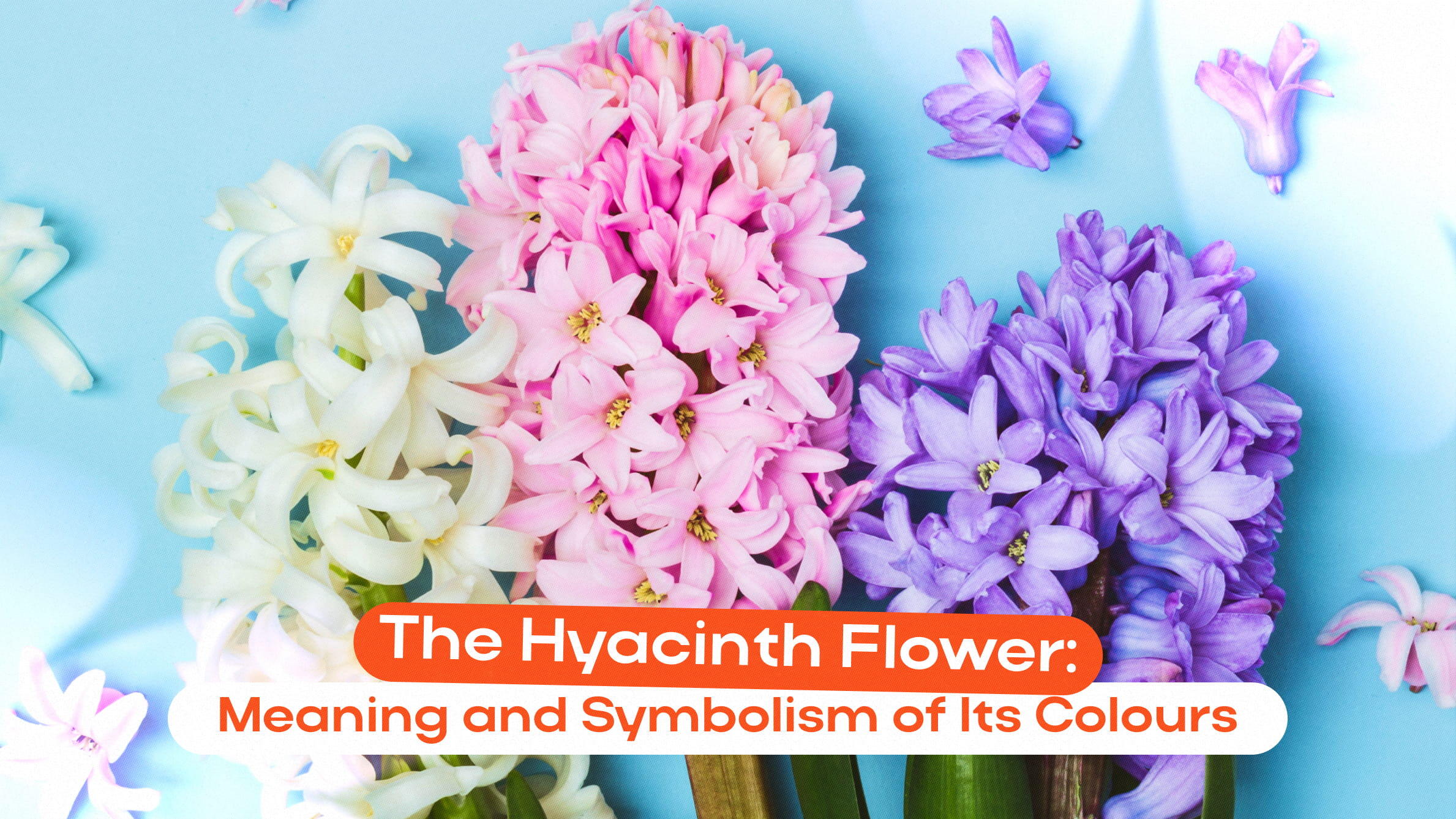
In the tapestry of traditions and celebrations that adorn the calendar, Easter stands as a beacon of hope and renewal. Join us on a journey through the essence of Easter as we delve into its rich history and explore its diverse symbolism. Wondering 'What are the origins of the holiday’s traditions?' or 'When is Easter next year'? Get answers to these questions and discover a myriad of fascinating facts about this cherished holiday.

When is Easter Sunday in 2024?

Why does the date of Easter change each year?
The variable date of the celebration is closely linked to the celestial dance of the Earth's natural satellite, the moon. It reflects the endeavour to correlate the holiday with Passover, given the connection of the love of Christ with this Jewish festival, whose timing is influenced by lunar phases.
How to calculate the date of Easter?
The feast unfolds on the initial Sunday following the full moon, succeeding the equinox in March. Should the full moon grace the sky on Sunday, the holiday transfers to the ensuing Sunday.
For those wondering 'When is Easter this year?' we've got the answer: in the year 2024, March 31 marks the occasion to delight in hunting for delectable chocolate eggs and savouring a joyous festive dinner!
It's worth noting that Easter's date varies across Christian branches. Unlike Western Christian Easter, which follows the Gregorian calendar, the date of Orthodox Easter is determined by the Julian calendar. This variance results in a discrepancy in the timing of the celebrations. Curious about 'When is Greek Easter in 2024'? This year, it falls on May 5.
Easter celebration dates for the coming years
- If you're curious, 'When is Easter in 2025?' rest assured, we have the answer for you: mark your calendar for April 20 to revel in the festivities.
- When is Easter in 2026? That year, the joyous celebration awaits on April 5.
- As for 2027, Easter brings its cheer on March 28.
- For Easter in 2028, circle April 16 in your planner for the blissful celebration.
- April 1, 2029, promises to be a delightful occasion, as it marks the vibrant Easter festivities and joy awaiting us.
- In the year 2030, the date set for the celebration is April 21.
When are the Easter holidays in 2024 in the UK?

When are the Easter bank holidays in 2024
In 2024, a bank holiday weekend is set to commence with Good Friday on March 29 and conclude with Easter Monday on April 1 for all parts of the UK except Scotland, where the last date won't be observed as a public holiday. This extended break offers an excellent chance to relish a refreshing getaway, engage in exciting recreational pursuits, and indulge in the delightful tradition of savouring festive delicacies.
When are the Easter school holidays in 2024
In the UK, the Easter holidays for many schools span from March 29 to April 12; nevertheless, certain regions may observe different schedules. Wishing all students a happy and enjoyable Easter break!
Operation of shops on Easter holidays
As per governmental regulations, establishments exceeding an area of 280 square metres are required to shut down operations on Easter Day; consequently, all leading supermarkets will be inaccessible on that occasion. Conversely, businesses with dimensions smaller than 280 square metres are authorised to operate as usual.

Easter history and facts about Easter
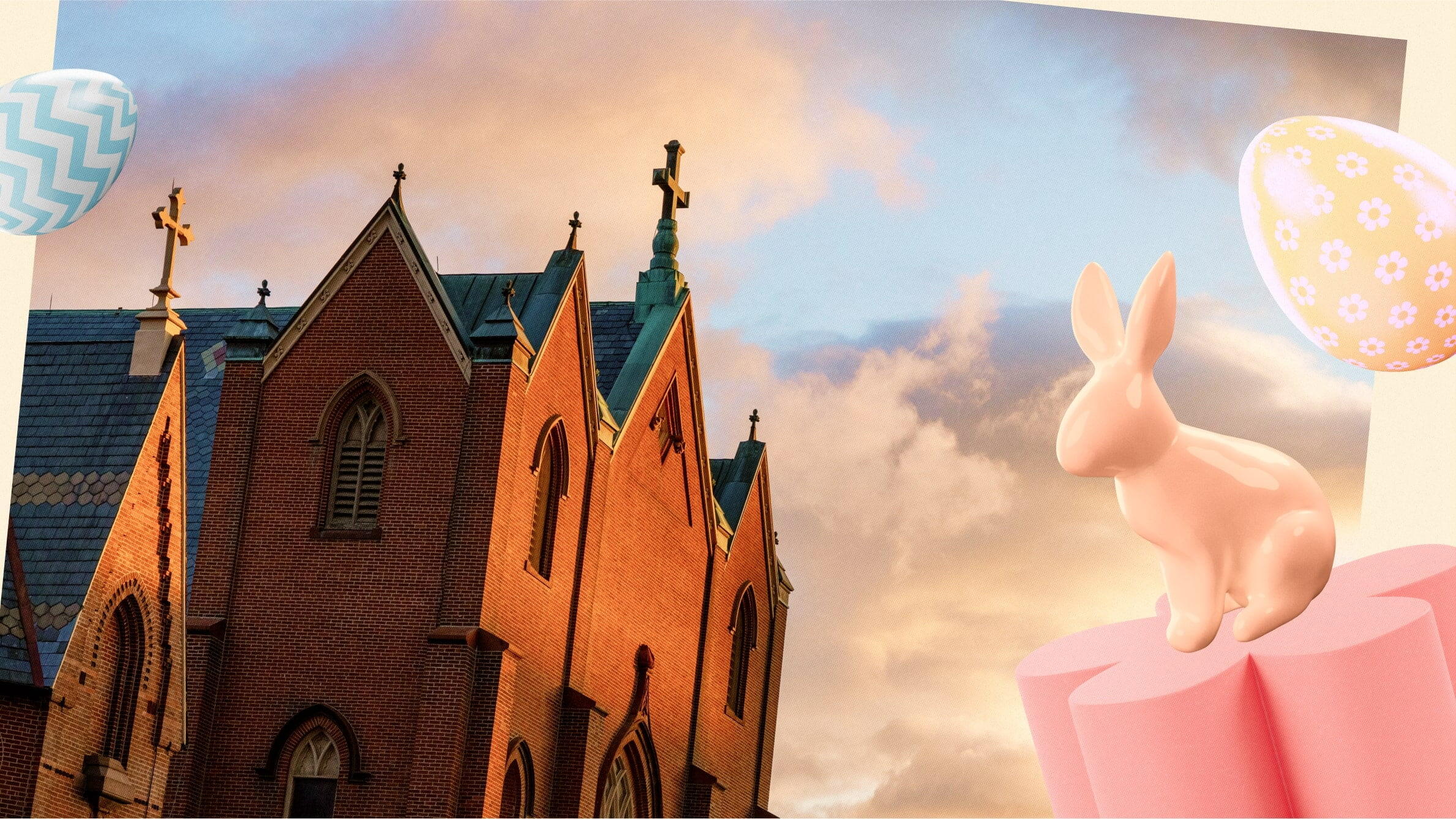
Origin of the word 'Easter'
A proposition suggests a connection between the term and the Old English 'Eostre,' which referred to a goddess; allegedly, festivities honouring this deity took place around what is now April. An alternative hypothesis posits that the term originates from a German word denoting 'east', which can be traced back to an ancient Latin word connoting 'dawn'. Throughout spring, the first light of dawn gracefully unfolding across the eastern horizon marks the arrival of days that outlast the nights.
Spring celebrations before Christianity
Before Christianity's rise, ancient civilisations often held reverence for the solstices and equinoxes, viewing them as significant points tied to the rhythms of nature. The equinox in March, with its balanced daylight and darkness, symbolised breaking free from winter's grip. With Christianity's arrival, Easter absorbed revival motifs, intertwining resurrection with spring's renewal. The ancient rituals echo in contemporary festivities, bridging time-honoured practices with religious symbolism.
Why do Christians celebrate Easter?
The resurrection in Christianity is pivotal, signifying the triumph over transgression and death, offering believers hope in eternal life beyond the mortal realm. Easter serves as a time for them to celebrate the certainty of this pledge through Jesus' resurrection and to contemplate concepts of salvation, renewal, and the ultimate victory of virtue over despair.
Do other religions celebrate Easter?
Various other cultures and religions also commemorate significant events during this season, often coinciding with the spring’s onset. One such example is Passover (Pesach), a prominent Jewish festival marking the deliverance of the Israelites from bondage in Ancient Egypt. Another example is Holi, a festival within Hinduism that signifies the onset of spring and the victory of righteousness over wrongdoing.
Easter traditions and their origins

Egg rolling
Traditionally avoided during Lent, with the onset of the Easter season, eggs become permissible once more, leading to various customs. One of them is egg rolling, a spirited competition that involves skillfully manoeuvring hard-boiled eggs across the ground utilising only a long-handled spoon. The tradition resonates with the imagery of an angel shifting the stone blocking the entrance to Jesus' tomb.
Easter egg colouring
The Easter egg carries profound symbolism reminiscent of rebirth, echoing the emergence of Jesus from the vacant tomb. Moreover, it embodies a Trinitarian symbolism, with its yolk, albumen and shell representing three facets. The tradition of dyeing eggs red to represent Christ's shed blood is deeply rooted in antiquity; however, over time it has transformed, and now eggs are adorned with a wide array of hues and patterns, mirroring the vibrancy and delight of the occasion.
Easter Bunny
The Easter Bunny, an endearing emblem of the holiday season, emerged from the German Lutheran tradition (moreover, in ancient Germanic folklore and pagan rites, rabbits symbolised fecundity and renewal). Originating as a charming creature delighting children with concealed eggs amidst garden nooks, the lovely custom has expanded, now encompassing chocolates and toys, imbuing the festive season with an aura of wonder and anticipation for all to relish.
Traditional Easter gifts

Easter baskets
The Easter basket embodies the essence of spring's rejuvenation, brimming with delights like candies, toys, chocolates, and trinkets. In this timeless tradition, the elusive Easter bunny sneaks in to surprise children with scrumptious treats overnight, making the morning of Easter a joyous occasion for all.
Cakes for Easter
Cakes are deeply intertwined with the customs of the holiday worldwide, epitomising renewal, abundance, and joy. Gathering with loved ones to savour a festive cake is a cherished ritual observed in numerous cultures and religious communities across the globe, standing the test of time.
Flowers for Easter
Easter festivities honour the timeless custom of adorning spaces with blooms, a vibrant ode to spring's awakening. Among the cherished floral emblems of the holiday, lilies, notably in pristine white, stand as heralds of Christ’s purity and His triumph; radiant tulips embody vitality and the dawn of fresh starts, while daffodils are emblematic of rejuvenation and the blossoming of hope.
Easily buy and send enticing Easter treats, charming flowers, and lovely presents in London with Flowwow. Explore our diverse selection to find the perfect item for this joyous occasion, seamlessly place the order using the Flowwow app or its web version, and await swift and dependable delivery.
Easter treats
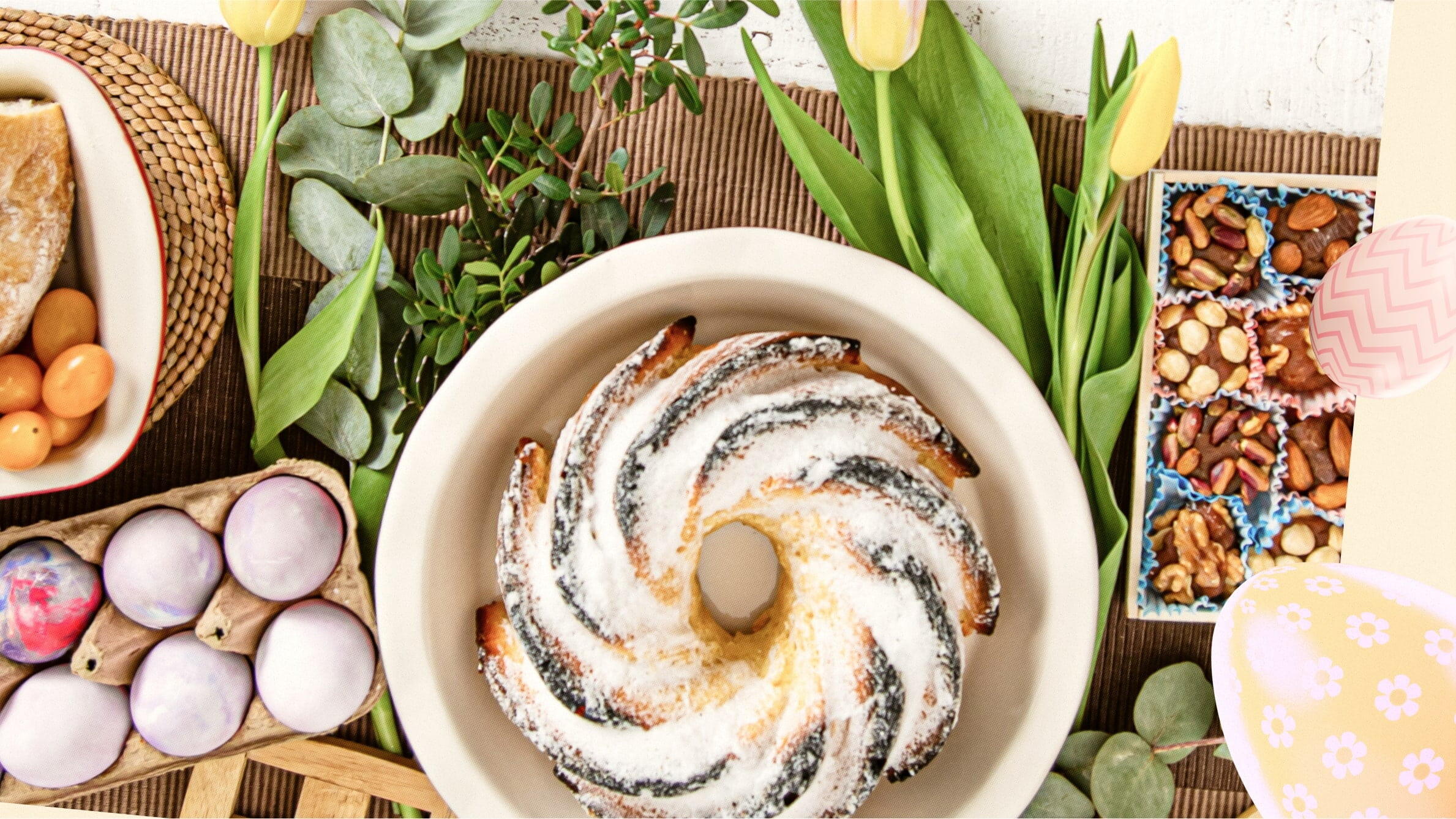
Сhocolate eggs for Easter
Fashioned from delectable, velvety chocolate, these eggs boast elaborate designs and concealed treasures within, delivering delight to both young and old throughout the entire Easter weekend.
Hot cross buns
A cherished treat, these soft and sticky dough buns, leavened with yeast and dotted with peel and dried fruit, feature a notable cross atop. The cross represents crucifixion, while the peel signifies the bitterness of His suffering.
Simnel cake
Simnel cake, a beloved British delicacy, boasts a rich history harkening to the mediaeval era. This delectable fruit cake is adorned with the eleven marzipan balls, reminiscent of the disciples of Jesus, excluding Judas Iscariot.
Easter Sunday Roast
Easter Sunday is all about gathering with dear ones to partake in a delicious meal typically featuring a roast centrepiece, whether it's lamb, poultry, beef, or pork. Accompanied by roasted vegetables, stuffing, and gravy, it's a delightful weekend feast filled with warmth and merriment.



